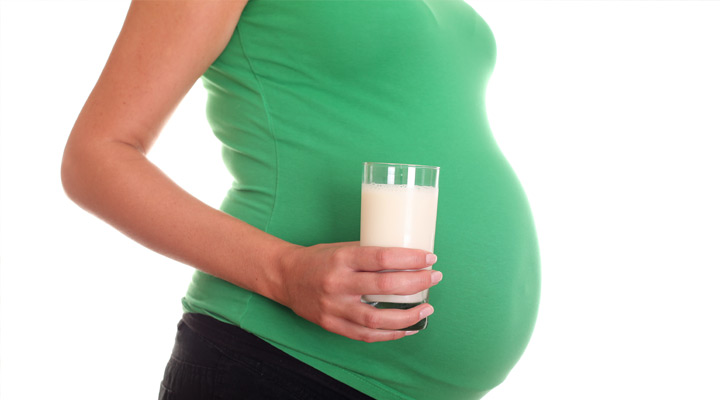
Dairy during pregnancy
During pregnancy it's essential to support your greater dietary needs, dairy can help.
Pregnancy places greater nutritional demands on a woman’s body, so during pregnancy, it’s important to have a varied diet from across the five food groups. A healthy diet should provide all essential nutrients, including nutrients important for pregnancy such as calcium, folate and iron.
Recommended dairy intake for products such as milk, cheese, yoghurt and/or alternatives for women is:
- 3.5 serves/day for women up to 18 years of age; and,
- 2.5 serves/day for women aged 19-50.
- These recommendations stay the same during pregnancy.
Having at least 2.5 serves of milk, cheese or yoghurt every day will help ensure adequate calcium intake a growing baby needs for bone and teeth development.
A serve is a cup (250ml) of milk, three-quarters of a cup (200g) of yoghurt or two slices (40g) of cheese.
Although the risk is small, some dairy foods are more prone to contamination with listeria than others and should be avoided during pregnancy.
When pregnant, avoid eating unpasteurised dairy products and soft, semi-soft and surface-ripened cheese such as brie, camembert, ricotta, feta and blue cheese.
Fresh cheeses like cottage cheese and ricotta should only be eaten if they are served cooked and hot.